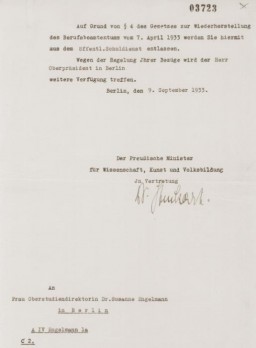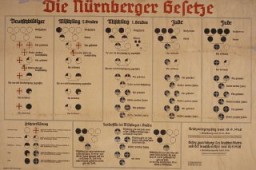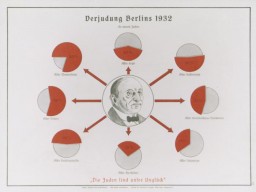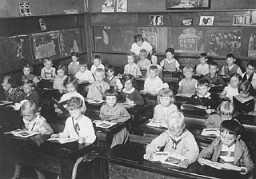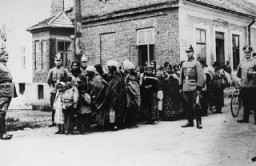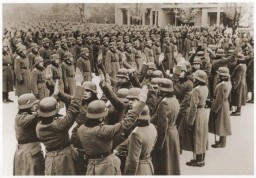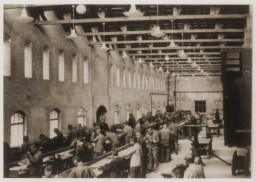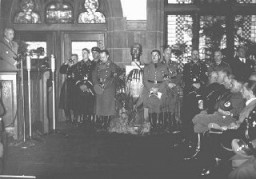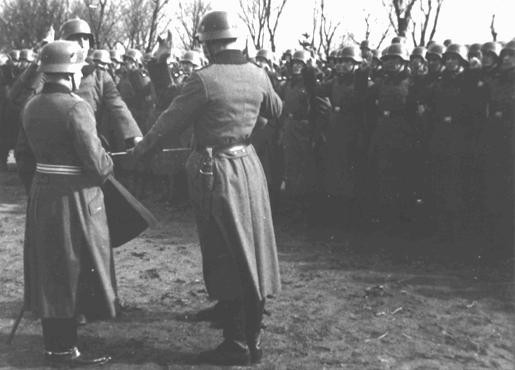
How did German professionals and civil leaders contribute to the persecution of Jews and other groups?
How involved in the Holocaust were German professionals and civil leaders? What were some of the motivations and pressures that led to a wide range of behavior? What indeed was the range of behavior, from complying to perpetrating?
Explore this question to broaden your understanding of how and why the Holocaust could happen.
See related articles for background information related to this discussion.
The Role of Professionals
Persecution of Jews and other groups was not solely the result of measures originating with Adolf Hitler and other Nazi zealots. Nazi leaders required the active help or cooperation of professionals working in diverse fields who in many instances were not convinced Nazis. These professionals ranged from civil servants, lawyers, doctors, teachers, police, members of the military, business elites, to church leaders.
To have had a chance of galvanizing opposition, recognition of the dangers of Nazism would have had to occur from the moment of the Nazis’ rise to power and the early stages of Nazi rule, before the Nazis' destruction of democracy and consolidation of near-total power in Germany. This did not happen. There was an overlap of values shared with the Nazis and their antisemitic prejudices, and rights and protections for Jews were never a significant enough priority for those professionals and other civic leaders who might have made a difference.
How Did They Comply?
The ways in which specific professions, fields, and businesses complied are varied.
- Civil servants, from government officials to judges, helped draft, implement, and enforce laws aimed at depriving Jews of their rights, livelihoods, and assets.
- Lawyers, jurists, physicians, and university professors were actively involved or went along with the expulsion of Jews from their fields and cooperated in other ways with the Nazi regime in the implementation of racial policies.
- The police and military played vital roles in the consolidation of Nazi power and persecution and mass murder of Jews and other groups.
- Leaders of banks, insurance companies, and other commercial and industrial businesses participated in the persecution of Jews. Many of them played a role in the “Aryanization” of the German economy, the expropriation of Jewish assets, and the use of forced labor during the war.
- And church leaders were all but silent regarding the persecution of the Jews.
Why Did They Comply?
Reasons for compliance varied among specific professions, fields, and businesses.
Common everywhere were some shared beliefs with the Nazis, pressures to conform and defer to authority, and concern for one’s own career, business, or institution.
Other factors included the ease with which experts and institutions could be co-opted and become complicit in mass crimes, and the varying ways in which individuals could separate their professional roles from personal convictions and beliefs.
There were also various degrees of prejudice toward Jews. Because of this prejudice, rights and protections for Jews were never a significant enough priority for those professionals and other civic leaders who might have made a difference.
Critical Thinking Questions
Investigate the awareness of citizens in all professions of the systematic nature of the persecution and destruction of the Jews. How would you begin to research this question?
Consider the Nuremberg Laws chart. What professions played a role in its creation?
Consider the roles of military and police professionals. How might their oaths and traditional responsibilities be tested in times of social upheaval? Does this question apply to other professions?
How can knowledge of the events in Germany and Europe before the Nazis came to power help citizens today respond to threats of genocide and mass atrocity?


